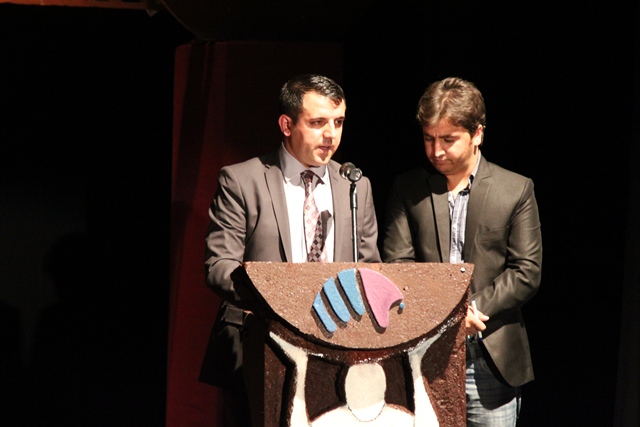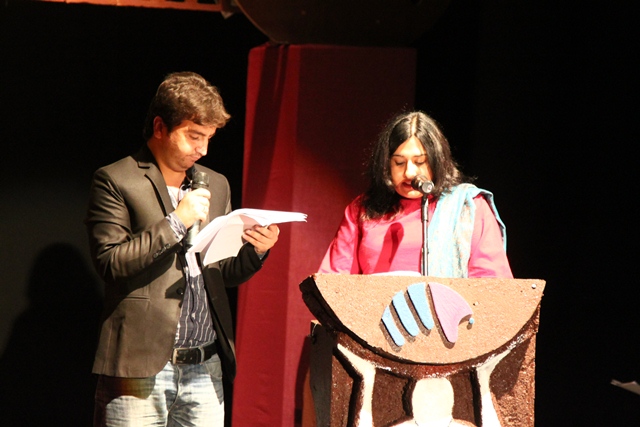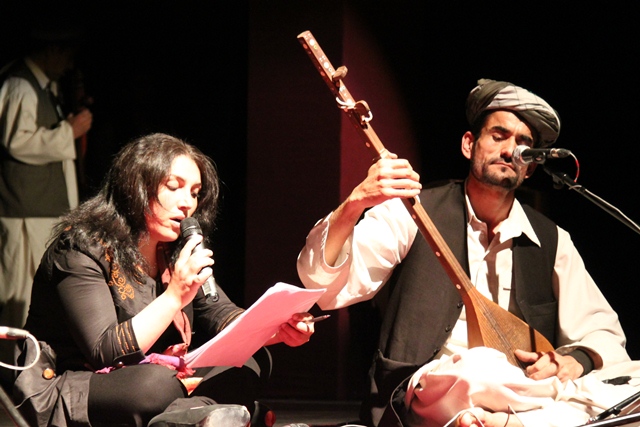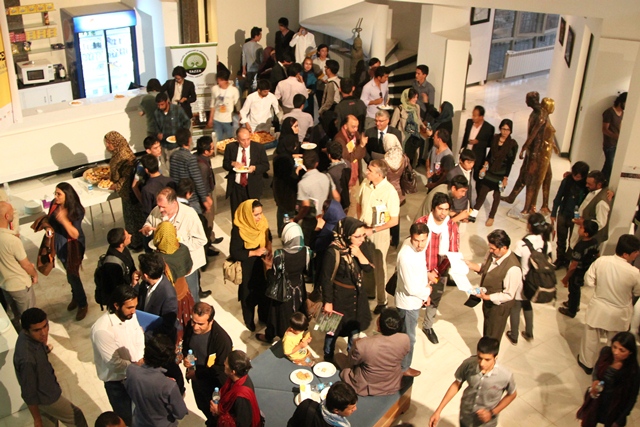KABUL - The second International Afghanistan Human Rights Film Festival officially opened in the capital, Kabul, yesterday, with the screening of ‘Wajma’ – a feature film which Afghanistan has submitted for competition in the Best Foreign Language Film category at next year’s Academy Awards.
“In relation to human rights grievances, this festival can significantly contribute in unveiling the social realities which can certainly have great impact on people’s lives,” the Deputy Minister for Information and Culture, Mossadiq Khalili, said in his remarks to the opening.
He noted that the festival was a great opportunity for Afghan filmmakers to have their voices heard around the world on issues related to human rights, and added that the festival was also an extraordinary artistic and cultural event, which showcases Afghanistan’s capacity to organize such events as well as well as the country’s commitment to freedom of expression.
Some 400 filmmakers and cinema aficionados gathered for the opening. The opening film, produced by Barmak Akram, an Afghan filmmaker based in France, touched upon human rights and social issues through the on-screen story of two young lovers in Kabul.
The festival is an initiative of the Afghanistan Cinematic Club (BASA), and is supported by several national and international organizations, including the United Nations Assistance Mission in Afghanistan (UNAMA). The theme of this year’s festival is ‘We dream of a red apple that is shared with every citizen of the world.’
In her comments to the opening, a UNAMA Senior Human Rights Officer, Suki Nagra, said the UN Mission was proud to support a festival which has become established as a platform to showcase a selection of national and international films, aimed at portraying human dignity and highlighting social injustices, including inequality, violence and deep-seated discrimination.
“We cannot underestimate the potential of this festival to spark debate and provoke discussion, raise awareness, and inspire a new generation of filmmakers and human rights activists,” Ms. Nagra said.
“I strongly believe in the power of film and media and its impact; it will keep taking filmmakers to places inhabited by the illiterate, the oppressed, and the poor, to places where visual story-tellers are needed to document the life of people, their dreams and, indeed, their struggles,” Ms. Nagra added.
UNAMA’s role involves its Human Rights and its Strategic Communications and Spokespersons’ Units, which provide technical support and production advice to the festival’s organizers and some of the filmmakers, in addition to holding workshops – which will take place during the festival – focused on various human rights issues and the role that film can play in relation to human rights, especially on women’s right.
Arrangements have also been made to co-screen the films at one of the compounds of UNAMA for the benefit of members of the international community based in Kabul.
Amongst the films being premiered, UNAMA is showing a documentary film, ‘A Tale of Two Cities,’ in the non-competition category of films. This production is an observational documentary examining the critical issues that emerged during the first year after the Libyan revolution – from the general absence of security that convinced so many to make their voices heard at the ballot box, the role of religion in Libyan public life and the legacy of torture. Produced by the UN Support Mission in Libya (UNSMIL) and directed by UNSMIL staffer Iasoon Athanasiadis, the feature is filmed from the perspective of five Libyans filmed during the weeks before and after the country’s historic, nationwide elections of July 2012.
A total of 65 documentary, fictional and animation productions centred on the issues of human rights, in short- and long-formats, will be showcased during the festival, which also includes screenings and events in the central province of Bamyan. The films have been selected out of 380 submissions from all over the world, including countries in the region such as Iran, Tajikistan, Kyrgyzstan, Kazakhstan, and India.
Of the productions submitted for screening at the festival, 24 films were produced in Afghanistan.
A five-member jury, made up of international film experts, will review the films and select the top eight on the basis of artistic merit and human rights themes and messaging. The winning filmmakers will receive awards and cash prizes.
“It is important to remember that many of the films that will be showcased here over the next week are banned from being shown in their home countries,” said UNAMA’s Ms. Nagra. She noted that this was due to censorship and lack of freedom of expression, as well due to crackdowns on films and filmmakers deemed to be critical of ruling elites.
There are currently 33 human rights film festivals around the world and Afghanistan holds the only one in its region.
“This alone is a huge achievement,” said Ms. Nagra. “This festival itself represents the freedoms of speech and expression, and an open and thriving film industry in Afghanistan.”
The first Afghanistan Human Rights Film Festival was held in Kabul and Mazar-e-Sharif in 2011. That event was also the first film festival held in a Central Asian country. The week-long event screened 32 Afghan and 18 foreign films, out of a total of 200 productions which were submitted.
In this year’s festival, besides international and national films, another category has been created for students so that can have an opportunity show their work and gain exposure. The three best films from the students’ category will receive wider screening during the festival.










